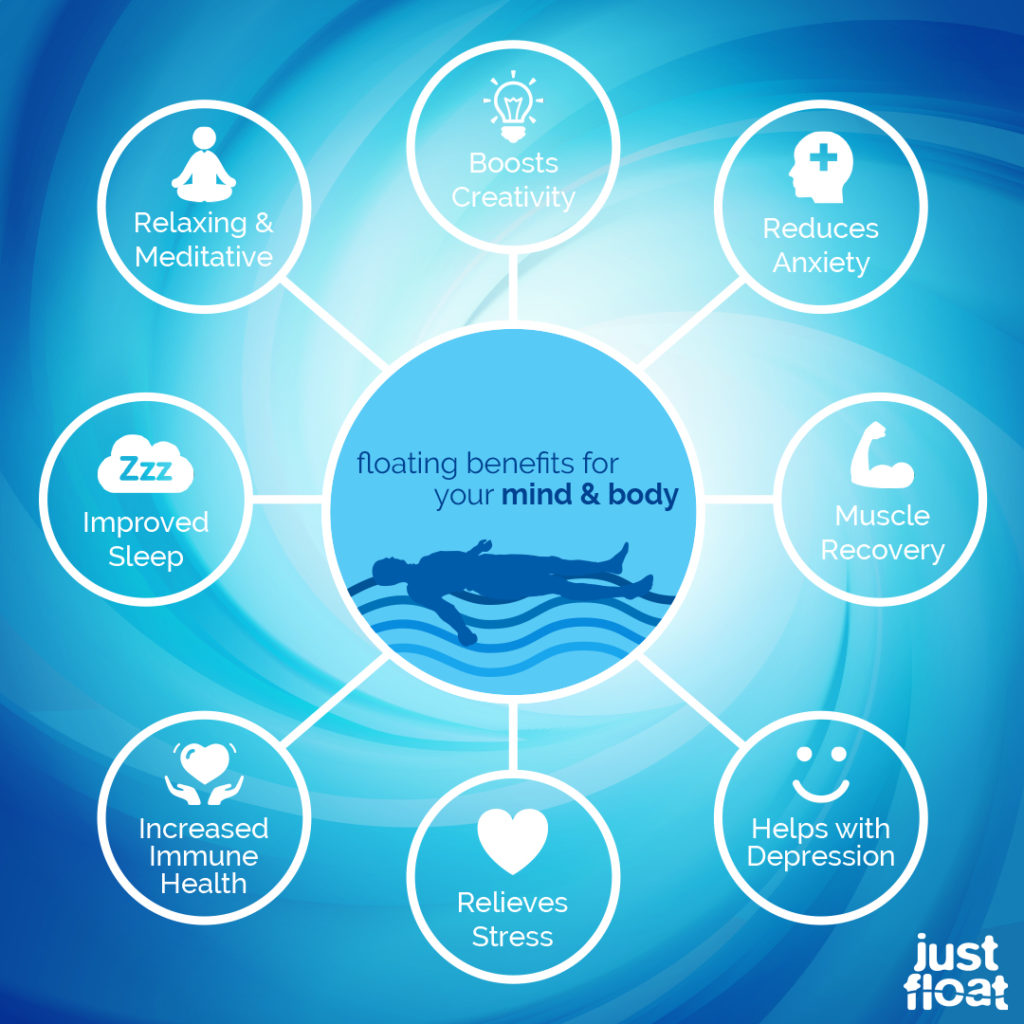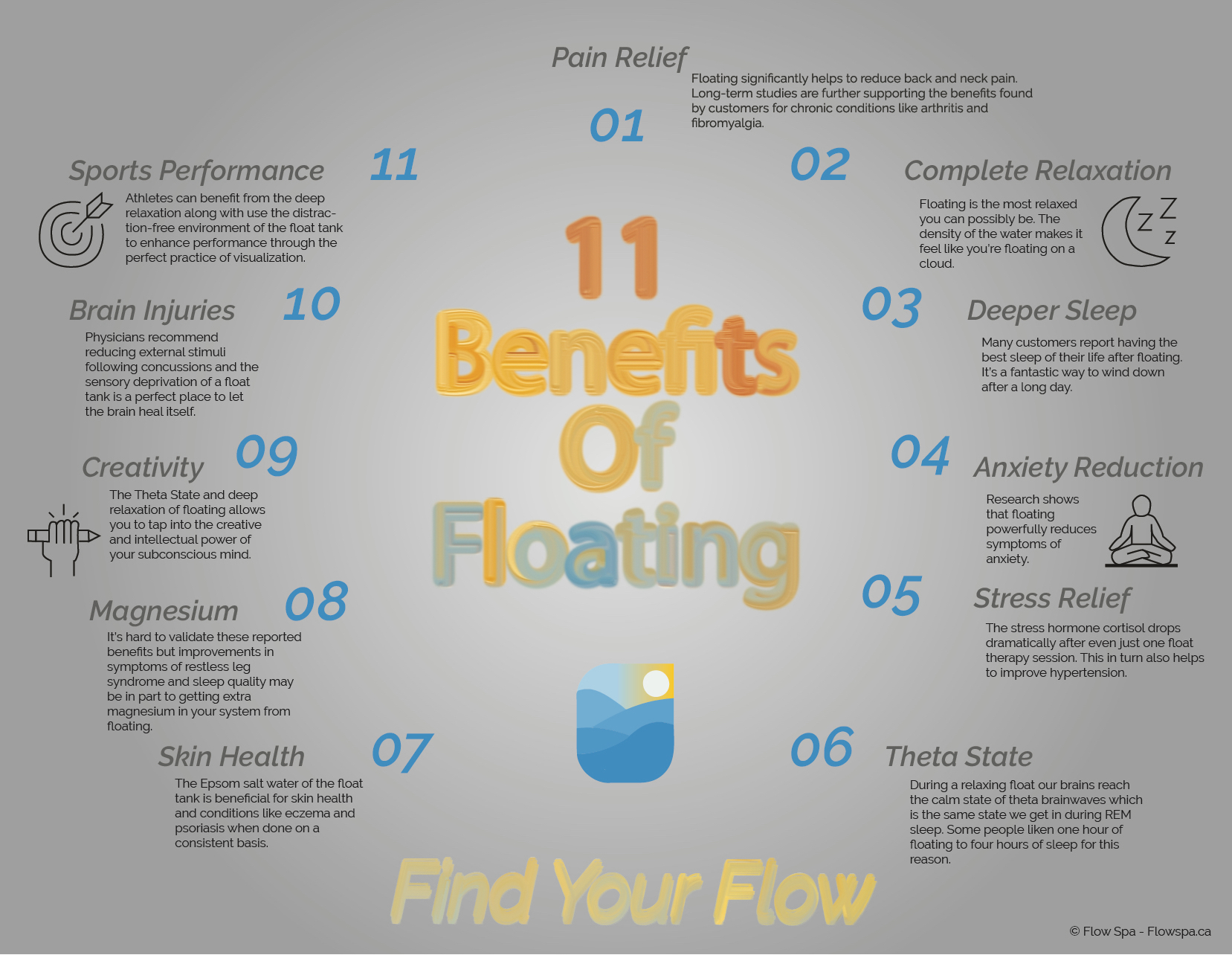what does float therapy do
Introduction to Float Therapy
Float therapy, also known as sensory deprivation or isolation tank therapy, involves floating in a tank filled with warm saltwater. The purpose of this therapy is to experience deep relaxation and various physical, mental, and spiritual benefits.
What is Float Therapy?
Float therapy, also known as sensory deprivation or isolation tank therapy, involves floating in a tank filled with warm saltwater. The purpose of this therapy is to experience deep relaxation and various physical, mental, and spiritual benefits.
Brief history and background of Float Therapy
Float therapy was first developed in the 1950s by neuroscientist John C. Lilly, who created the first isolation tank. It gained popularity in the 1970s and has since evolved as a holistic therapy for relaxation and well-being.
Physical Benefits of Float Therapy

Float therapy provides various physical benefits, including pain relief and muscle relaxation, improved blood circulation, and reduced inflammation. It can also help with post-workout recovery and relieve symptoms of chronic pain conditions.
Pain relief and muscle relaxation

Float therapy has been shown to provide relief from various types of pain, including muscle soreness, joint pain, and chronic pain conditions. The weightlessness and the warm Epsom salt solution in the float tank help to alleviate tension and relax the muscles, allowing for pain relief and a sense of deep relaxation. This can be particularly beneficial for individuals experiencing chronic pain or recovering from physical injuries or surgeries.
Improved blood circulation and reduced inflammation

Float therapy also promotes improved blood circulation and reduces inflammation in the body. The sensory deprivation and relaxation experienced during the float session help to increase blood flow and decrease inflammation, leading to overall better health and wellbeing.
Mental and Emotional Benefits of Float Therapy
Float therapy has numerous mental and emotional benefits. It helps reduce stress and anxiety levels, promotes mental clarity and focus, and enhances meditation and self-awareness. It also boosts creativity and promotes introspection. Many people have reported positive experiences and improved mental well-being after float therapy sessions. Float therapy has shown promising results in improving mental health and emotional well-being.
Stress and anxiety reduction

Float therapy has been found to greatly reduce stress and anxiety levels. The weightlessness and relaxation experienced during a float session help calm the mind and promote a sense of overall well-being. Many individuals have reported feeling more relaxed and peaceful after their float therapy sessions.
Enhanced mental clarity and focus

Float therapy has been found to enhance mental clarity and focus. The sensory deprivation and deep relaxation experienced during a session can help clear the mind and improve cognitive function. Individuals often report feeling more alert and focused after a float session.
Spiritual and Consciousness-Expanding Effects of Float Therapy

Float therapy has been known to induce a heightened state of meditation and self-awareness, allowing individuals to explore their spirituality. It can also enhance creativity and foster deep introspection, leading to personal growth and self-discovery.
Heightened meditation and self-awareness

Float therapy has been found to induce a heightened state of meditation and self-awareness. By removing external distractions, individuals can delve deeper into their consciousness and explore their spirituality. The sensory deprivation environment encourages a sense of deep introspection and self-reflection, allowing for personal growth and self-discovery.
Increased creativity and introspection

Float therapy has been shown to enhance creativity and introspection. By creating a space free from external stimuli, individuals can tap into their inner thoughts and unleash their creative potential. This deep state of relaxation fosters a fertile ground for new ideas and insights to emerge. Many individuals report a surge of inspiration and a heightened sense of self-awareness during and after float therapy sessions.
Conditions and Concerns for Float Therapy
Float therapy is generally considered safe and beneficial for most individuals. However, there are certain conditions and concerns to be aware of. It is important to consult with a healthcare professional before engaging in float therapy if you have any of the following:
- Open wounds or skin infections: Float tanks contain a highly concentrated salt solution, which may cause discomfort or irritation if in contact with open wounds or skin infections.
- Highly sensitive skin: Some individuals with sensitive skin may experience irritation or allergic reactions to the salt solution used in float tanks. It is advisable to do a patch test before the session.
- Claustrophobia: The enclosed space of the float tank can trigger anxiety or panic in individuals who experience claustrophobia. It is best to try an open float tank or gradually acclimate oneself to the closed tank environment.
- Uncontrolled epilepsy or seizures: While there is no evidence to suggest that float therapy triggers seizures, individuals with uncontrolled epilepsy or a history of frequent seizures should consult with their healthcare provider before undergoing float therapy.
- Incontinence: Float tanks are filled with a large volume of water. Individuals with incontinence issues may find it difficult to control their bladder during a float session.
- Infectious diseases: Float tanks require strict hygiene and cleaning practices to prevent the spread of infectious diseases. It is important to ensure that the float center follows proper sanitization protocols.
It’s essential to discuss any concerns or medical conditions with a healthcare professional before trying float therapy to ensure it is safe and suitable for you.
Who can benefit from Float Therapy?
Float therapy can benefit a wide range of individuals, including those experiencing chronic pain, stress, anxiety, insomnia, and those seeking relaxation and rejuvenation.
Safety guidelines and precautions
When participating in float therapy, it is important to follow safety guidelines and precautions. These may include showering before and after your session, avoiding floating if you have open wounds or infections, and not floating if you are under the influence of drugs or alcohol. It is also recommended to consult with your healthcare provider if you have any medical conditions or concerns before trying float therapy. Remember to always follow the specific instructions provided by the float center.
Conclusion
In conclusion, float therapy offers a range of physical, mental, and spiritual benefits. With proper safety precautions, it can be a valuable practice for many individuals seeking relaxation and wellness.Many individuals who have tried float therapy have reported experiencing deep relaxation, reduced stress, and improved mental clarity. Testimonials suggest that float therapy has helped people alleviate chronic pain and enhance their overall well-being.
Future prospects of Float Therapy
Float therapy continues to gain popularity and recognition as a holistic approach to wellness. With ongoing research and advancements, future prospects for float therapy include expanding its use in various healthcare settings and potentially developing new therapeutic techniques for specific conditions. As the benefits of float therapy become more widely known, it has the potential to become a mainstream wellness practice.




